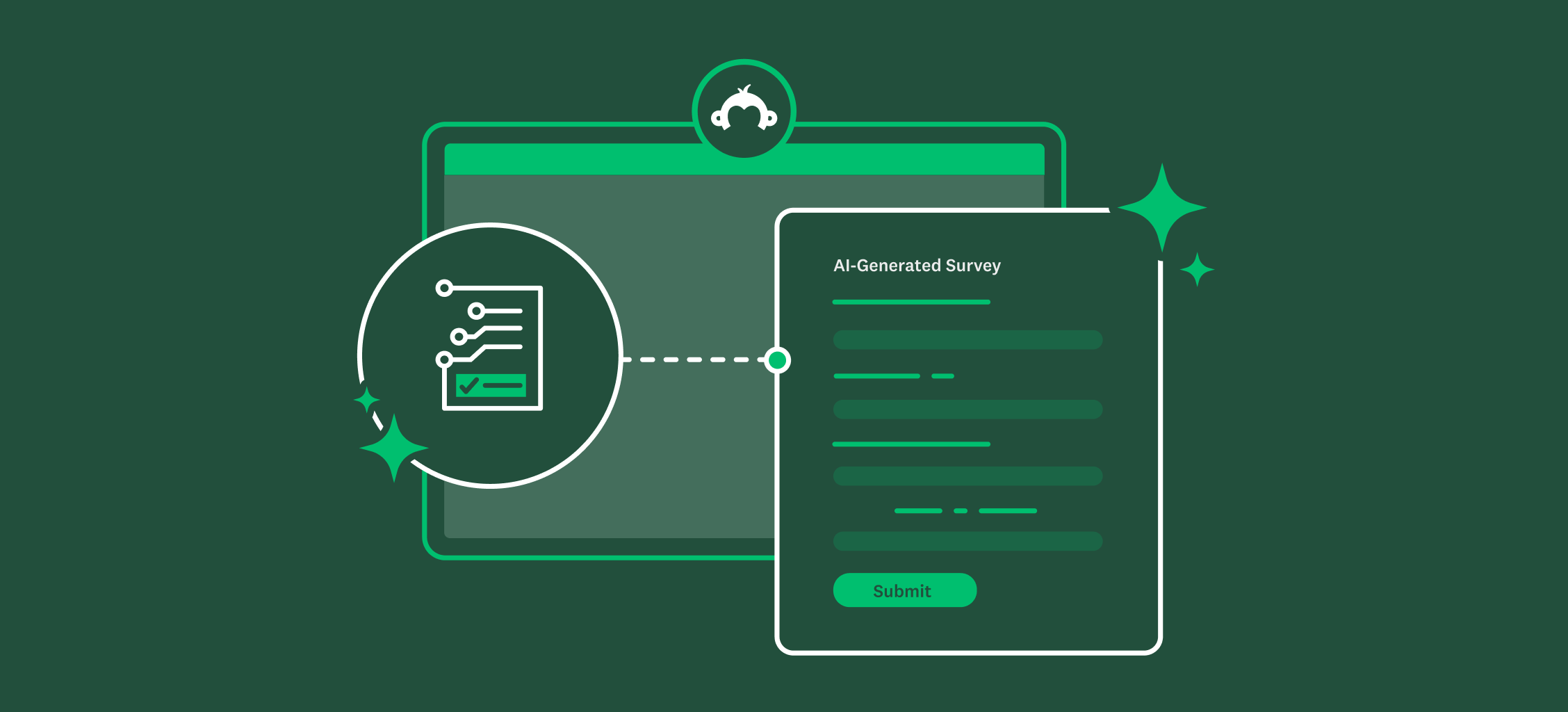SurveyMonkey with Build with AI: Complete Buyer's Guide
Democratizing AI survey capabilities across all pricing tiers
SurveyMonkey with Build with AI democratizes artificial intelligence survey capabilities across all pricing tiers, making advanced AI accessible to marketing teams without enterprise-level complexity or consulting requirements.
Market Position & Maturity
Market Standing
SurveyMonkey maintains a strong competitive position in the accessible AI survey segment, positioned strategically between basic survey tools lacking AI capabilities and enterprise platforms requiring significant consulting investment.
Company Maturity
The company's market maturity is evidenced by its ability to serve enterprise clients like IBM, Samsung, and JetBlue [133][126][150] while maintaining accessibility for mid-market organizations through transparent pricing and self-service implementation models.
Growth Trajectory
The global online survey software market growth projections of $6.44 billion expansion from 2025-2029 at 13.6% CAGR [147] create significant opportunities for SurveyMonkey's mid-market positioning.
Industry Recognition
Industry recognition stems from the platform's successful democratization of AI capabilities across pricing tiers [136].
Strategic Partnerships
Strategic partnerships with Azure OpenAI and OpenAI [136] position SurveyMonkey advantageously within the broader AI ecosystem.
Longevity Assessment
Long-term viability is supported by the company's established market presence and demonstrated ability to evolve with technological trends.
Proof of Capabilities
Customer Evidence
IBM leveraged the platform's AI capabilities to process large-scale customer feedback efficiently, achieving trend identification within 48-hour timeframes [133][150].
Quantified Outcomes
Hornblower reported 40% higher response rates following SurveyMonkey implementation, directly contributing to 23% higher customer retention [150].
Case Study Analysis
Samsung Electronics provides compelling evidence of operational transformation through SurveyMonkey deployment, achieving 70% reduction in survey deployment time while supporting 150+ annual studies [126][150].
Market Validation
Market adoption evidence shows consistent growth patterns across customer segments.
Competitive Wins
Organizations choosing SurveyMonkey over alternatives cite AI accessibility across pricing tiers [136], implementation speed with 3-week deployment timelines [150], and self-service capabilities reducing consulting dependencies as primary decision factors.
Reference Customers
Enterprise customers like IBM, Samsung, and JetBlue validate the platform's effectiveness for sophisticated organizational requirements [133][126][150].
AI Technology
SurveyMonkey's Build with AI feature represents a sophisticated integration of Azure OpenAI and OpenAI technologies [136], providing generative survey creation capabilities.
Architecture
The core AI architecture operates through three primary technical layers: generative survey creation using Azure OpenAI integration [136], automated sentiment analysis through proprietary algorithms [134][138], and intelligent response filtering for quality enhancement [134].
Primary Competitors
Qualtrics, QuestionPro, and emerging players like Typeform.
Competitive Advantages
Implementation speed with 3-week deployment timelines [150], cost transparency, and immediate AI access across plan tiers without extensive consulting requirements [136].
Market Positioning
SurveyMonkey targets the accessible AI survey segment, positioned between basic survey tools lacking AI capabilities and enterprise platforms requiring significant consulting investment.
Win/Loss Scenarios
SurveyMonkey wins when organizations prioritize rapid deployment, cost transparency, and self-service capabilities over advanced analytics depth.
Key Features

Pros & Cons
Use Cases
Integrations
Pricing
Featured In Articles
Comprehensive analysis of AI Survey Tools for AI Marketing & Advertising for AI Marketing & Advertising professionals. Expert evaluation of features, pricing, and implementation.
How We Researched This Guide
About This Guide: This comprehensive analysis is based on extensive competitive intelligence and real-world implementation data from leading AI vendors. StayModern updates this guide quarterly to reflect market developments and vendor performance changes.
151+ verified sources per analysis including official documentation, customer reviews, analyst reports, and industry publications.
- • Vendor documentation & whitepapers
- • Customer testimonials & case studies
- • Third-party analyst assessments
- • Industry benchmarking reports
Standardized assessment framework across 8 key dimensions for objective comparison.
- • Technology capabilities & architecture
- • Market position & customer evidence
- • Implementation experience & support
- • Pricing value & competitive position
Research is refreshed every 90 days to capture market changes and new vendor capabilities.
- • New product releases & features
- • Market positioning changes
- • Customer feedback integration
- • Competitive landscape shifts
Every claim is source-linked with direct citations to original materials for verification.
- • Clickable citation links
- • Original source attribution
- • Date stamps for currency
- • Quality score validation
Analysis follows systematic research protocols with consistent evaluation frameworks.
- • Standardized assessment criteria
- • Multi-source verification process
- • Consistent evaluation methodology
- • Quality assurance protocols
Buyer-focused analysis with transparent methodology and factual accuracy commitment.
- • Objective comparative analysis
- • Transparent research methodology
- • Factual accuracy commitment
- • Continuous quality improvement
Quality Commitment: If you find any inaccuracies in our analysis on this page, please contact us at research@staymodern.ai. We're committed to maintaining the highest standards of research integrity and will investigate and correct any issues promptly.